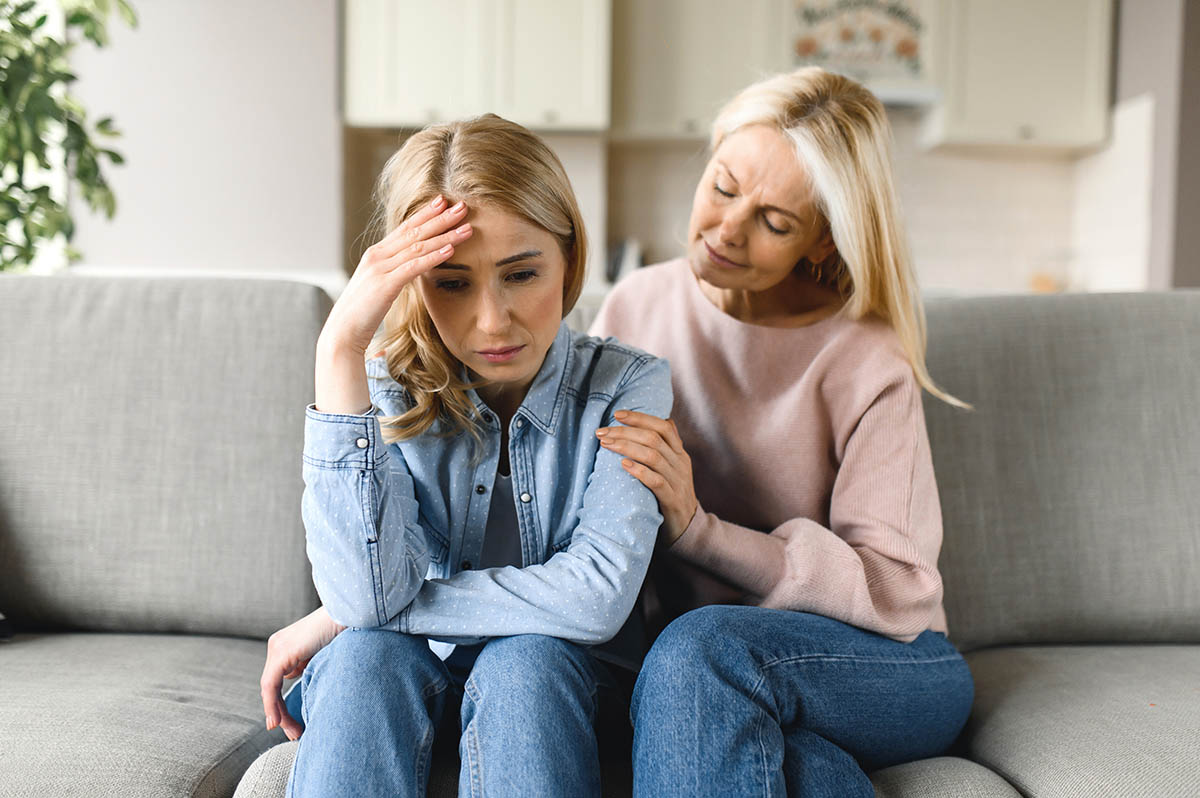Anxiety is part of life, and feeling anxious or stressed during significant life changes is normal. Starting a new job, suffering financial hardships, or going through the end of a relationship can bring on feelings of anxiety. With time and coping skills, most anxiety will get better over time. However, some people experience chronic anxiety that exceeds their coping skills or doesn’t match the size of the stress. People might lose sleep about a small mistake at work or worry excessively about making small decisions. For many who struggle with anxiety, it is difficult to recognize when they might need extra support. Learning the signs of anxiety can be the first step towards managing it.
If you or a woman you love struggle with anxiety, you are not alone. At Women’s Recovery, we empower women and give them the skills to live full, healthy lives while caring for their mental health. We can help you recognize the symptoms of anxiety and provide methods as to how to avoid it. Call us at 833.754.0554 or fill out an online intake form here.
Symptoms of Anxiety
People often live with untreated anxiety for many years. Recognizing anxiety can be difficult. It is sometimes difficult to differentiate everyday worries and stress from excessive anxiety. Some common symptoms of anxiety include:
- Excessive worrying
- Difficulty concentrating or poor memory
- Agitation or irritability
- Muscle tension
- Sleep and appetite disruptions
- Panic attacks
- Feeling anxious in social situations
If your anxiety interferes with your ability to enjoy or participate fully in your life, it may need more attention. Any of these symptoms can be a sign that you may benefit from an anxiety treatment program.
Self-Care for Anxiety
Self-care means more than just giving yourself little breaks or luxuries. It means being thoughtful about what your body, mind, and spirit need and building a life that allows these needs to be met. For many people, excessive anxiety is a signal that they aren’t meeting their needs. To care for your mental health and avoid symptoms of anxiety:
- Prioritize your physical and mental health.
- Make time for regular exercise.
- Eat nourishing foods.
- Take breaks from work to do something relaxing.
- Set clear boundaries between your work and home life.
- Find a good balance between socializing and rest.
If your anxiety worsens or you feel like you can no longer manage your mental health, reach out for support.
Treatment for Anxiety Symptoms
Generally, a mental health treatment program will use an evidence-based combination of therapy and medication to help you recover from anxiety. Holistic therapies can help nourish your spirit and mind and give you the skills to manage stress and cope with change in healthy ways. Getting support to improve your mental health will help you lead the life you choose instead of having to work so hard to cope with your anxiety. Getting support and taking care of your mental health are important ways to honor and care for your whole self.
Learn More About Mental Health at Women’s Recovery
You do not have to manage your anxiety alone. At Women’s Recovery, we will work with you to help you build the skills to reduce your anxiety, improve your mental health, and live the full, self-directed life you deserve. Our programs include:
- Depression treatment
- Anxiety treatment
- Bipolar disorder treatment
- PTSD treatment
- Substance abuse treatment
Anxiety does not have to control you or your life. If you are ready to take the first step in your journey to positive mental health, we will walk the rest of the way with you. Please call 833.754.0554 or fill out an online intake form here.







